Search Results
Showing results 101 to 120 of 199

Vocal Visualizer
Source Institutions
With a bit of PVC, a laser, a can/cup, and a small mirror, you can make a device that visualizes you voice or any sound transmitted into the cup/can.
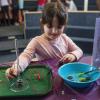
Build A Battery
Source Institutions
The Let's Do Chemistry "Build a Battery" activity lets participants learn how batteries work and how materials behave, change, and interact by building their own simple battery out of metal and felt w
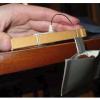
How Many Pennies?
Source Institutions
In this activity (pages 13-14), learners investigate the properties of smart materials, which are materials that respond to things that happen around them.
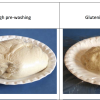
Wheat Evolution: Dough Washing
Source Institutions
In this activity (Page 22 of PDF), learners investigate the evolution of wheat by washing different types of dough with water and comparing the results.
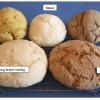
Wheat Evolution: Dough Rising and Baking
Source Institutions
In this activity (Page 25 of PDF), learners investigate the evolution of wheat by creating dough from different flours, observing the samples of dough as they rise, and then baking the dough.
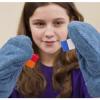
Mitten Challenge
Source Institutions
In this activity, learners try to put together toy bricks—wearing oven mitts on their hands! This activity shows learners how difficult it is to build small things when your tools are too big.

Plastics the Second Time Around
Source Institutions
In this activity, learners test and compare the physical properties of thermoplastic polymers. Learners compare different plastics based on their color, degree of transparency, texture, and density.

Mystery Sand
Source Institutions
In this activity, learners play with surprising sand that doesn’t get wet! Learners explore how water behaves differently when it comes in contact with "magic sand" and regular sand.

Balancing Sculptures
Source Institutions
In this activity, learners will use a variety of household and/or natural objects to design a sculpture that balances from a single point.

Engineer A Bird Feeder
Source Institutions
In this activity, learners of all ages will design a functional bird feeder using familiar, every day materials.

Invisible Sunblock
Source Institutions
This is a hands-on activity exploring how nanoscale particles are used in mineral sunblocks to increase their transparency.

Exploring Size: Powers of Ten
Source Institutions
In this activity, learners play a card game that explores the relative sizes of various objects. Learners compete to organize their hand of cards into lists of objects from largest to smallest.

Exploring Size: Measure Yourself
Source Institutions
In this activity, learners mark their height on a height chart and discover how tall they are in nanometers.
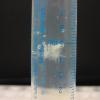
Home Molecular Genetics
Source Institutions
In this activity, learners extract DNA from their own cheek cells, then create a rudimentary DNA profile similar to those seen on crime scene dramas.

Bird Feeder Challenge
Source Institutions
In this activity, learners are challenged to build a bird feeder using recycled materials from home and are encouraged to problem solve during the extensions.
Soaring Satellites
Source Institutions
Using a vertical wind tube and using simple materials, individuals and groups attempt to design a "satellite" that floats for at least 5 seconds.
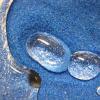
Magic Sand: Nanosurfaces
Source Institutions
This is an activity/demo in which learners are exposed to the difference bewteen hydrophobic surfaces (water repelling) and hydrophilic surfaces (water loving).

Homemade Rube Goldberg Machine
Source Institutions
In this fun and, at times, hilarious force and motion activity, learners will use household objects to build a crazy contraption and see how far they can get a tennis ball to move.
Making An Impact!
Source Institutions
In this activity (on page 14 of PDF), learners use a pan full of flour and some rocks to create a moonscape.

Crunch and Munch Lab
Source Institutions
In this activity, learners use three types of cheesy snacks--cheese balls, cheese puffs, and Cheetos--to learn about polymers.
